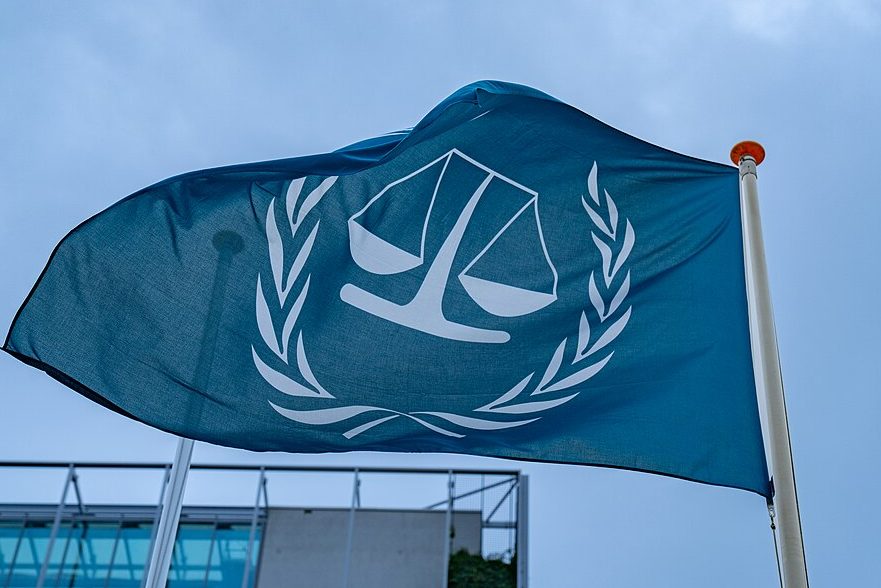Article 61(8) of the Rome Statute (the “Statute”) allows the Prosecutor of the International Criminal Court (ICC) to resubmit charges that the Pre-Trial Chamber (PTC) has refused to confirm, provided “additional evidence” is presented. Yet neither the Statute nor the ICC’s Rules of Procedure and Evidence define what qualifies as “additional”, or whether the evidence must be substantively new. In more than twenty years of ICC practice, the clause has never been invoked, and no jurisprudence has clarified the threshold. Its dormant status is not harmless. In principle, the Prosecutor could return after a failed attempt under Article 61(7)(b) with only slightly stronger material. That would prolong proceedings, burden the defence, and squander the Court’s already limited budget on repeat hearings.
The central questions are why Article 61(8) has never been used and why it was included in the Statute in the first place.
Drafting and Use
Under Article 61(7), the PTC must determine whether there are substantial grounds to believe that the accused committed the alleged crimes. If that threshold is met, charges are confirmed under Article 61(7)(a). If not, the Chamber may either decline confirmation under Article 61(7)(b) or adjourn the hearing under Article 61(7)(c). Only in the case of a final refusal under Article 61(7)(b) does Article 61(8) become relevant, granting the Prosecutor the possibility to file a new application supported by “additional evidence’’.
Article 61(8) was added to the Statute during the Rome Conference at Austria’s proposal. As El Zeidy and Chaitidou note in the Rome Statute Commentary (Triffterer/Ambos, 2016), the intention was to preserve a procedural option for resubmission after a failed confirmation, so that serious cases would not collapse irrevocably at an early stage.
Mr. Enrique Carnero Rojo, Legal Officer at the ICC’s Office of Public Counsel for Victims, in his Lecture on Article 61, describes confirmation as a unique pre-trial stage where a suspect can contest charges and prevent the opening of trial. If charges are declined, Article 61(8) permits a later resubmission. The aim is early judicial control with a narrow possibility of reapplication upon new evidence, which reflects the realities of practice where investigations are often delayed, evidence surfaces late, witnesses are dispersed, and access to crime scenes may be blocked.
In practice, Article 61(8) has remained unused. Where there is an objective prospect of strengthening the case with further material, the PTC has tended to instead rely on Article 61(7)(c); adjourning the confirmation hearing and allowing the Prosecutor to return with new evidence. This path is preferred because an application under Article 61(8) would likely be heard by a different judicial composition and would require the entire process to restart. This approach was evident in Prosecutor v. Gbagbo, where the Chamber postponed the hearing and later confirmed charges once additional material was submitted. By contrast, in Prosecutor v. Mbarushimana the Chamber declined to confirm any charges (Article 61(7)(b)), the appeal was dismissed, and the case was closed. Although resubmission under Article 61(8) remained theoretically possible, it was not pursued.
A Dead Letter?
The following table lists all instances in which the PTC declined to confirm one or more charges under Article 61(7)(b) and indicates whether the Office of the Prosecutor (OTP) sought resubmission. It shows that Article 61(8) has never moved beyond theory:
| Case | Year | Disposition | 61(8) Resubmission |
| Prosecutor v. Bahr Idriss Abu Garda (Darfur, Sudan) | 2010 | Full refusal | No |
| Prosecutor v. Callixte Mbarushimana (DRC) | 2011 | Full refusal | No |
| Prosecutor v. William Ruto, Henry Kosgey & Joshua Sang (Kenya) | 2012 | Partial refusal * | No |
| Prosecutor v. Francis Muthaura, Uhuru Kenyatta & Mohammed Hussein Ali (Kenya II) | 2012 | Partial refusal ** | No |
| Prosecutor v. Alfred Yekatom & Patrice-Edouard Ngaïssona (CAR II) | 2019 | Partial refusal | No |
* The Trial Chamber later vacated the confirmed charges against Ruto and Sang; this does not alter the 61(7)(b) non-confirmation recorded for Kosgey.
** The Prosecutor later withdrew the confirmed charges against Kenyatta and Muthaura under Article 61(9); this does not alter the 61(7)(b) non-confirmation recorded for Ali.
Even when the Chamber noted in the Yekatom & Ngaïssona case that “the Prosecutor is not precluded from subsequently requesting confirmation of any declined charge, provided the request is supported by additional evidence (art. 61(8) Statute),” the option was not used. Therefore, more than twenty years on, Article 61(8) not only endures as a dead letter but does so in terms so indeterminate that they frustrate any consistent legal use.
From Dismissal to Return
The possibility of renewing charges after an initial failure is not unique to the Statute. Domestic systems likewise permit prosecutors to revive proceedings when evidence initially falls short, as the rule against double jeopardy, which bars a person from being tried twice for the same offence, generally applies only after a final judgment has been reached.
In the United States, Federal Rules of Criminal Procedure 5.1(f) authorises a magistrate judge to dismiss a complaint at the preliminary hearing for want of probable cause. Because double jeopardy has not yet come into play, the prosecutor may file a new complaint or seek a grand jury indictment, with each new filing again obliging the accused to appear pursuant to Rules 5(a) and 43(a)(1).
In England and Wales, § 23(9) of the Prosecution of Offences Act 1985 allows the Crown Prosecution Service (CPS), after discontinuing proceedings in the Magistrates’ Court, to bring fresh proceedings for the same offence. The statute sets no evidential threshold. CPS policy, however, requires that the Full Code Test (the evidential and public interest threshold in CPS charging policy) be satisfied and that reinstitution not amount to an abuse of process, typically where new evidence now enables the test to be met.
German law follows a two-tier approach. Under § 170(2) of the German Code of Criminal Procedure, the prosecutor may terminate proceedings for lack of sufficient suspicion and later revive them. The statute does not require new material as a formal condition, although in practice resumption is usually prompted by its emergence. If the court refuses to open the Hauptverfahren (main or trial proceedings, the stage where the court examines the charges and delivers judgment) under § 204, however, a renewed indictment is permissible only on the basis of new facts or evidence under § 211.
The contrast with the Statute lies less in whether charges can be revived than in how the procedure works. In domestic systems, dismissal or revival is a simple step: the court reopens the file and considers new evidence, often through short rulings with little publicity. At the ICC, by contrast, Article 61 requires a full adversarial confirmation hearing, normally public, with extensive disclosure, translation and an obligation for the accused to attend unless he or she has waived that right or cannot be found. If used merely to recycle marginally stronger material, Article 61(8) risks turning into an ethically questionable tool that reproduces nearly all the burdens of the first hearing while adding little in return. For the defendant, this means renewed costs and a risk of being arrested or held in custody again. For the court, it means another round of hearings and filings, together with large-scale registry work. With a persistently limited budget, such repetition, while legally allowed, effectively wastes resources. Accordingly, while both domestic systems and the ICC rules preserve the power to revive charges, the practical burdens of doing so are far heavier in The Hague.
Moving Forward
Many argue that the Court’s design tilts toward the prosecution, particularly at the confirmation stage; an imbalance often explained by the Court’s intense political context. Article 61(8) exemplifies the OTP’s broad discretion, though its open wording is difficult to justify within this logic of necessity.
The question, then, is how to contain this discretion without departing from the Court’s legal framework. The most obvious routes for adjustment, such as a formal amendment or a shift to closed preliminary hearings as found in many national systems, are scarcely realistic. Closing confirmation hearings would run against the Statute’s spirit, while amending the text to clarify Article 61(8) would require action by the Assembly of States Parties, a process well known for its lengthiness and complexity. A more workable path lies in soft law. The OTP could issue a guidance note requiring every Article 61(8) motion to be accompanied by a memorandum that (i) identifies each new item of evidence and (ii) explains why it could not, with reasonable diligence, have been presented earlier. The PTC could reinforce this through a guideline in the ICC Chambers Practice Manual, undertaking a prima facie review of (a) objective novelty and (b) probative value. The standard would be clear: material is new only if it was previously unavailable and could materially affect the “substantial grounds” assessment.
Similar mechanisms already exist; for instance, the OTP’s Policy Paper on Sexual and Gender-Based Crimes clarifies that a victim’s testimony alone can be sufficient to support charges without the need for additional corroboration, while the Chambers Practice Manual limits the use of live evidence at confirmation hearings to exceptional circumstances. Neither is binding, yet both carry institutional weight.
To anticipate possible resistance from the OTP, prosecutors may fear that such a note would be treated as a binding rule and cited against them in litigation. This concern can be mitigated by framing it as a presumption rather than an absolute bar, and by allowing departures where written reasons are provided. In return, both sides would gain the benefit of predictable standards, while the additional burden of a short memorandum would remain minimal.
By way of conclusion, I do admit that the risks highlighted in this article have not yet arisen in practice. But the law evolves slowly, and weaknesses should be addressed before they are tested. Current prosecutorial practice shows a strong commitment to Article 42(3), requiring the Prosecutor to be a person of high moral character, yet institutional design must not rely on personal ethics alone. In the long run, it is in the interest of all parties to make the Statute more predictable and inclusive, so that its procedures remain both fair and resilient regardless of circumstances.
In accordance with the Statement by the Executive Committee of the Deutsche Forschungsgemeinschaft (DFG) on the Influence of Generative Models of Text and Image Creation on Science and the Humanities and on the DFG’s Funding Activities, I disclose with full transparency that this article benefited from the limited and supportive use of generative AI tools. They were employed first to assist with grammar correction and stylistic refinement, and second, as part of the broader verification process, to support the review of the accuracy of the legal mechanisms described. The tools consulted included OpenAI ChatGPT models 5 and 5-Thinking, Google Gemini model 2.5 Flash, and DeepSeek R1. They were used only in a supportive capacity, with full responsibility for the substance and accuracy of the work resting solely with the author.

Egor Repinskiy is an emerging researcher whose academic interests lie in justice, accountability, and governance across international and domestic legal orders, with a focus on international criminal law at the intersection of governance and public policy.
